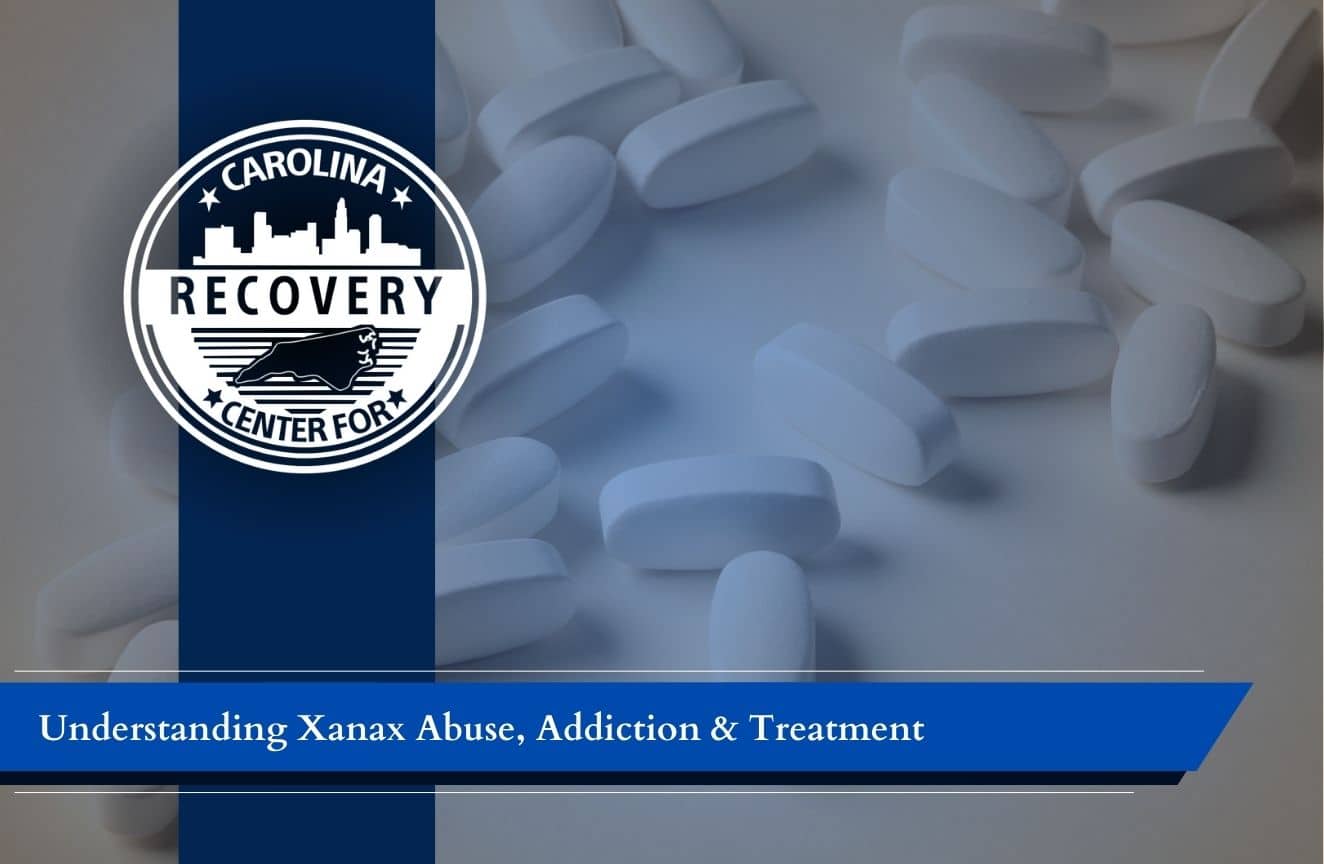


Xanax is a prescription medication people take to manage anxiety and panic disorders. Xanax is a benzodiazepine drug that has the potential for abuse and addiction.
People who take Xanax must be careful to follow their doctor’s instructions. They must also watch for signs of physical dependence and seek treatment as quickly as possible.
This article will explore Xanax abuse and addiction. You will learn the signs of Xanax abuse and how to find prescription drug abuse treatment.
Contact the Carolina Center for Recovery specialists now to learn about our Xanax addiction treatment programs. You may also schedule an intake assessment.
Xanax is the brand name for alprazolam. It is a prescription benzodiazepine. Doctors may prescribe Xanax to patients with panic or anxiety disorders. Xanax can relieve symptoms of these conditions and help people feel more comfortable.
Xanax works by increasing the effects of a neurotransmitter (brain chemical) called gamma-aminobutyric acid (GABA). GABA slows activity in the central nervous system (CNS). People who take Xanax may feel calmer and have fewer panic symptoms. Some people may also take Xanax to reduce the anxiety that comes with depression.
People typically take Xanax to reduce symptoms of anxiety or panic. Xanax can also cause unwanted short-term side effects, including:
Some of the effects of Xanax can be more dangerous. Dangerous side effects of Xanax include:
People who misuse Xanax may take higher doses than prescribed. Taking higher doses of Xanax increases the risk of experiencing dangerous side effects.
People who take Xanax may like the way it makes them feel. They may experience euphoria, which is intense pleasure and well-being. These good feelings might make them want to misuse Xanax.
Xanax misuse includes:
People who misuse Xanax can develop tolerance. Tolerance occurs when a person’s body adjusts to the presence of a substance. People with tolerance to Xanax need to take higher doses to get the effects they want.
A long period of heavy or frequent Xanax use can lead to physical dependence on the drug. Xanax addiction is more likely to occur when people misuse the drug. However, people taking it as prescribed can also exhibit signs of physical dependence.
Some risk factors increase the risk that someone will develop substance abuse. However, anyone who uses Xanax may become dependent on it. Anyone who takes Xanax must be aware of the risk of addiction and watch for signs.
Signs of Xanax addiction include:
Addiction can occur even if someone does not have other risk factors. Xanax is a highly addictive controlled substance. Misusing it can quickly lead to a life-threatening addiction. Watch for signs of addiction and seek treatment in a treatment facility as soon as possible.
Each person has unique needs during detox and treatment. Xanax rehab centers offer several levels of care in addiction treatment. These include inpatient, outpatient, and dual diagnosis treatment programs.
People struggling with Xanax addiction often require medical supervision during withdrawal from Xanax. During detox, medical professionals monitor and treat patients’ withdrawal symptoms. Treatment during detox includes:
After completing detox, people must continue to participate in treatment. During a comprehensive treatment program, a team of mental healthcare professionals, doctors, and support staff provide evidence-based treatment.
Treatment plans include:
Xanax addiction is a complex condition. People must complete a treatment program and stay active in recovery afterward.
If you or someone in your life is struggling with Xanax abuse or addiction, you are not alone. Comprehensive, compassionate treatment can help you work toward a healthier future. Don’t wait for the help you need. Seek treatment for Xanax addiction now.